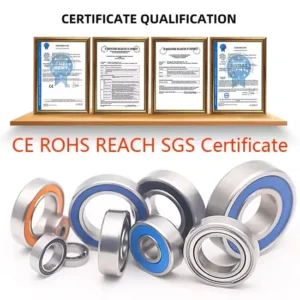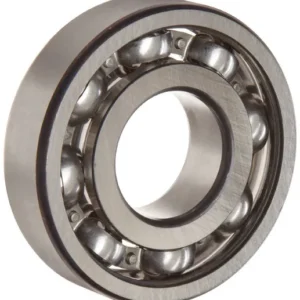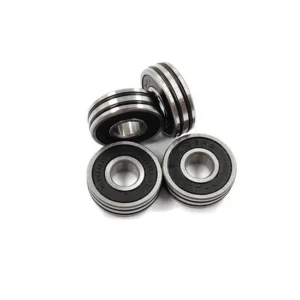This article focuses on the development and application of efficient low-friction steel bearings for seamless industrial machinery operation. It explores the significance of these bearings in enhancing the performance and efficiency of industrial machinery, discusses the materials and design principles involved, and highlights the benefits they offer in terms of reduced wear, energy savings, and improved operational reliability. The article also examines the challenges faced in their implementation and proposes solutions to overcome these obstacles.
Efficient low-friction steel bearings are a crucial component in the operation of modern industrial machinery. These bearings are designed to minimize friction and wear, thereby extending the lifespan of machinery and reducing maintenance costs. This article delves into the various aspects of efficient low-friction steel bearings, their design principles, materials, and the benefits they offer in seamless industrial machinery operation.
The choice of materials is critical in the design of efficient low-friction steel bearings. High-quality steel alloys are commonly used due to their excellent strength, durability, and resistance to wear. Table 1 below provides a comparison of different materials used in the manufacturing of these bearings.
```html
| Material | Strength (MPa) | Friction Coefficient | Wear Resistance |
|---|---|---|---|
| Carbon Steel | 500 | 0.15 | Good |
| Stainless Steel | 600 | 0.18 | Excellent |
| Alloy Steel | 700 | 0.12 | Very Good |
```
As shown in Table 1, alloy steel offers the highest strength and lowest friction coefficient, making it an ideal choice for efficient low-friction steel bearings.
The design of efficient low-friction steel bearings involves several key principles. These include:
1. **Optimized Geometry**: The geometry of the bearing is designed to minimize contact area and reduce friction. This is achieved by using ball or roller bearings with a smaller diameter and a larger number of rolling elements.
2. **Lubrication System**: A well-designed lubrication system is essential to reduce friction and wear. This can be achieved through the use of grease or oil, which forms a protective film between the rolling elements and the raceways.
3. **Surface Treatment**: The surface of the bearing components is treated to improve wear resistance and reduce friction. Common surface treatments include nitriding, hard chrome plating, and diamond-like carbon (DLC) coating.
The use of efficient low-friction steel bearings offers several benefits in industrial machinery operation:
1. **Reduced Wear**: By minimizing friction and wear, these bearings extend the lifespan of machinery components, reducing maintenance costs and downtime.
2. **Energy Savings**: The reduced friction in the bearings leads to lower energy consumption, contributing to overall energy efficiency in industrial operations.
3. **Improved Operational Reliability**: The enhanced performance of machinery due to the use of these bearings results in improved operational reliability and reduced risk of equipment failure.
Despite the numerous benefits, there are challenges in implementing efficient low-friction steel bearings. These include:
1. **High Initial Cost**: The use of high-quality materials and advanced manufacturing processes can lead to higher initial costs for these bearings.
2. **Complex Design**: The design of efficient low-friction steel bearings requires specialized knowledge and expertise.
3. **Maintenance Requirements**: Proper maintenance is crucial to ensure the continued performance of these bearings.
To overcome these challenges, manufacturers can focus on:
1. **Cost Optimization**: By improving manufacturing processes and adopting cost-effective materials, the initial cost of these bearings can be reduced.
2. **Training and Expertise**: Investing in training and hiring skilled personnel can help in the design and implementation of these bearings.
3. **Regular Maintenance**: Implementing a comprehensive maintenance program can ensure the longevity and performance of these bearings.
Efficient low-friction steel bearings play a vital role in seamless industrial machinery operation. Their use offers numerous benefits, including reduced wear, energy savings, and improved operational reliability. By addressing the challenges associated with their implementation, manufacturers can ensure the widespread adoption of these bearings in various industrial applications.
Efficient low-friction steel bearings, industrial machinery, wear resistance, energy savings, operational reliability, material selection, design principles, lubrication system, maintenance.

显示 1-4 个结果(共 11858 个结果)



